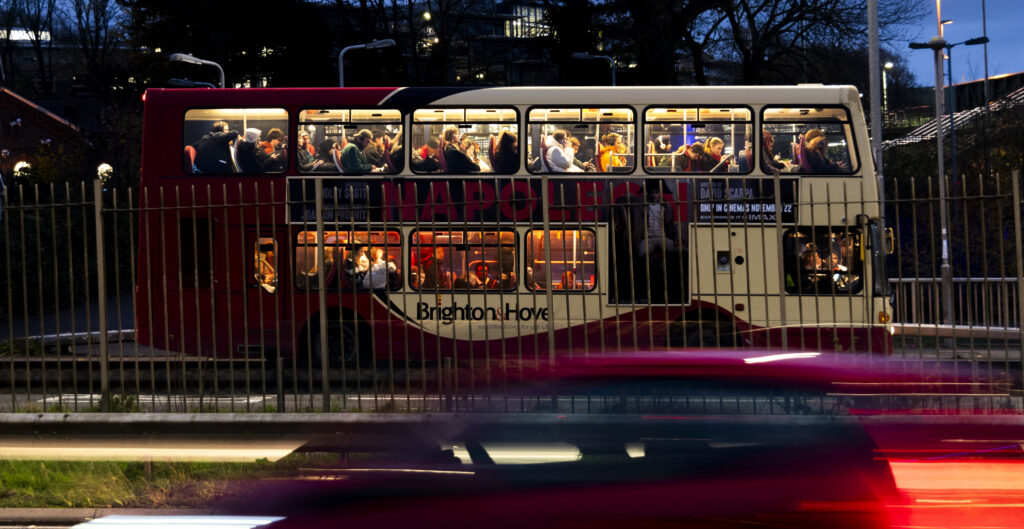Since the beginning of the academic year, rail strikes and bus shortages have caused major disruptions for Sussex students. Both real-time bus updates and fixed timetables have been found inaccurate, causing crowds of students to be stranded at Falmer Station at busy times each day. When buses do arrive, they are often too full to board, meaning many students have had to find alternative routes to and from the university.
In an article for Brighton and Hove News, the managing director at Brighton and Hove Buses, Ed Wills, attributed these issues to a shortage of drivers across the UK. He stated that the company is “doing everything [they] can to recruit more, including [implementing] a 20% pay increase over the last two years.” The University of Sussex has also chimed in on these inconveniences on social media. In a post on X (formerly Twitter), the school claimed to be aware of the “general issues with bus capacity”, and stated that they are in discussion with Brighton and Hove Buses to resolve the problems.

University students have not only been affected by the buses, as the start of the autumn semester was derailed by strike action. On 26 September, The Argus reported eight days of disruption due to an overtime ban by the Associated Society of Locomotive Engineers and Firemen (ASLEF), a trade union representing train drivers. On 4 October, there was no service across the Govia Thameslink Railway, a network which operates Southern Railway. Since this fell on a Wednesday, many students were unable to get to campus, which caused their attendance to suffer. This is a particularly pressing issue for the university’s international students, whose visas often stipulate that they must attend lectures in person. Transportation challenges are not only relevant to Sussex; tube strikes often impact students in London, where UCL caters for the highest number of international students in the UK.
Due to the cost of living crisis, a large number of university students are now living outside the city centre to save money. As a result, they often rely on more than one bus to transport them to campus. “I was initially impressed with the deals Brighton and Hove buses were offering,” says a Sussex student who is new to the area. “Unfortunately, I now find my Student citySaver tickets are redundant, and I have to resort to taking Ubers when my buses fail to arrive.”
While these public transport issues are causing disruption to residents across Sussex, students are inconvenienced in a multitude of ways. As attendance PINs usually expire within the first 20 minutes of a lecture, a time-consuming and difficult journey could lead to learners being marked as absent. Students have also expressed frustration towards having less time to complete readings or pre-lecture assignments due to arriving home late in the evening.

